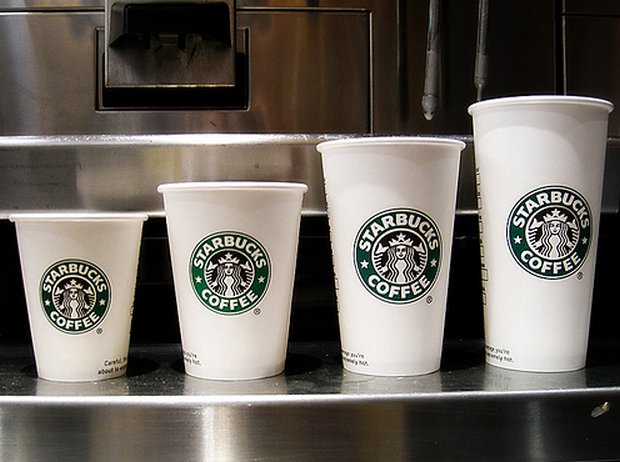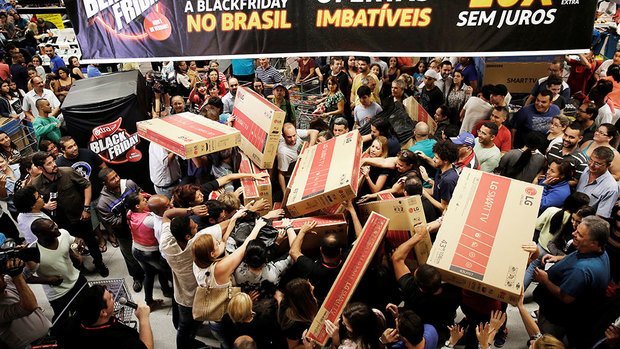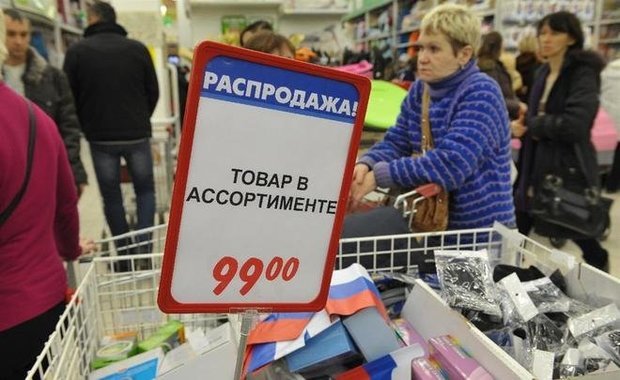''Even those who do not usually look at price tags will be involved in Black Friday boom''
Svyatoslav Biryulin, an expert in strategic management, tells about ‘the magic of large discounts’ and irrational behaviour of the buyer in relation to discounts and prices
Three-day sale Black Friday started yesterday in all cities of Russia. What is the benefit for companies from huge discounts on their products? Whether the position of those who believe Black Friday to be a lie for the consumer is justified? How does 'the magic of large discounts' influence on people? Director of Sapiens Consulting, expert in strategic management Svyatoslav Biryulin answered to these and other question in the column written for Realnoe Vremya.
''Consumer behaviour in relation to prices and discounts is irrational''
The phenomenon of Black Friday began from a small number of categories, but gradually expanded to a variety of products and even services. My children spent the end of October in thoughtful digging on the famous Chinese website in order at the right time to buy necessary (and, hand on heart, sometimes not so necessary) trinkets at a huge discount. And millions of people around the world did the same thing.
The book Misbehaving: The Making of Behavioral Economics by Richard Thaler, the Nobel prize winner of this year in the respective category, gives lot of attention to the phenomenon of prices and discounts. In particular, it dispels the myth that price or discount, despite the fact that both are measured by very specific clear values, are objects of rational consumer choice. It is considered that the consumer every time before taking out the wallet rationally evaluates the product price, possible discount, product quality and its 'usefulness' for him or her personally, and based on this collected data makes a rational choice.
In reality, it is not true. Thaler cites in the book the example: a group of students was given a choice — to buy a T-shirt for $20 in a store across the street or for $10 but in an outlet on the other end of the city. The majority of students voted for a trip for the discount. Other group of students was asked to choose between a laptop for $2,000 in a shop across the street, and the same laptop for $1,990 on the other end of the city, and the majority did not see the point in the trip. Although the discount was the same — $10.

They say that Starbuks sales of medium and large coffee significantly increased after the assortment was added with 'talls', 'huge' coffee cups
Maybe, the consumer makes calculations in percentages? After all, $10 from your laptop is only 0,5%, and from a T-shirt — 50%. But it is in the highest degree irrational, because, in fact, in both cases, we compare exactly the same things — $10 and your time. As Thaler argues convincingly in his book, consumer behaviour in relation to prices and discounts is irrational, even if we are talking about very expensive purchases.
And marketers use it for their benefit. For example, when a network cafe was selling a small coffee for 150 rubles and a large one for 300, the majority of consumers chose small one. But when the network introduced a medium coffee for 280 rubles, the sale of large coffee for 300 rubles increased dramatically. Because now a large coffee psychologically ceased to be 'twice as expensive than little one', it became 'only twenty rubles more expensive than average'. They say that Starbuks sales of medium and large coffee significantly increased after the assortment was added with 'talls', 'huge' coffee cups. Because in comparison with them, the cost of the average coffee began to seem less.
''Less conscientious sellers before Black Friday raise product prices''
Why do we like discounts? Because when buying at a discount we seem to ourselves to be rational and wise, thrifty and prudent. At their time, it was used by street vendors of worthless cooking 'sets' that 'only today' were being sold for an amount that seemed ridiculous compared to the number of items in the set. In the end, people laid out money for knives and food containers that did not serve even a month.
Conscientious sellers use Black Friday to sell unsold goods. It can be a quite good but just not very popular product (for example, TV with not very popular diagonal), which the procurement division in a temper brought to the warehouse in too much quantity. Besides, retailers use Black Friday to implement the annual plans to suppliers, which generally depend on sales volume. And the implementation of plans, in turn, influence on quarterly and annual bonuses, often making a significant share of the income of the networks.
Less conscientious sellers before Black Friday raise products prices (knowing that most buyers will refrain from buying until the promised night) to officially reduce the price to normal on that day. Every year on the Internet there are negative reviews about online shops that acted this way.

''Retailers use Black Friday to implement the annual plans to suppliers, which generally depend on sales volume.'' Photo: ntv.ru
One way or another, Black Friday and similar promotions are taking root, including in Russia. Moreover, there is a lot of companies that believe that one to three days per year is too little for sales, and organize Black Novembers when people can buy goods for reduced (or supposedly discounted) prices. A list of such companies can be easily found on the Internet. This year on day of bachelor (November 11) Aliexpress sold goods at $25,3 billion (!!!), while the level of five billion was reached in the first 5 minutes of sales at discounts.
''Companies rely on the fact that buyers in a 'discount frenzy' will buy more items or buy what they do not need at all''
Discounts during 'black days' reach 90%. At first glance it seems that it is impossible to make money on such discounts, but if it was not profitable, they would not organize them. However, the number of companies that drop prices in the fall is growing.
They don't always get from this direct monetary benefits. For example, Aliexpress is not a shop, it is a marketplace that provides access to its 'showcase' for small stores. And access to the first page in search results within the marketplace depends on seller rating, and the rating — from the number of sold items. That is why many traders put some products at a loss, increasing their rating that allows them to capitalize on other positions in the future.
Some companies rely on the fact that buyers in a 'discount frenzy' will buy more items or buy what they do not need at all. And it is most likely to occur. 'The magic of large discounts' works smoothly, and people enchanted by the opportunity to buy unnecessary things for 'almost nothing' often buy what will then gather dust in drawers of tables and cabinets.

''Some companies rely on the fact that buyers in a 'discount frenzy' will buy more items or buy what they do not need at all.'' Photo: gid.volga.news
Many consider these promo actions to be a 'consumer fraud', but in reality it all depends on a particular store. Surely someone uses the hype around Black Friday to make money on gullible consumers, but it is definitely unfair to blame the entire market.
In the future, Black Fridays or whole 'black months' will only gain popularity. 'Smart' consumer behavior is becoming fashionable even among the wealthy in Russia and worldwide. It becomes fashionable to buy something not at the highest price but on sale. That is why even those sectors of the population who do not usually look at price tags will be gradually involved in the boom of Black Friday.